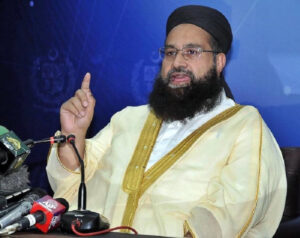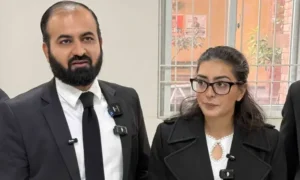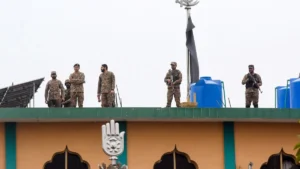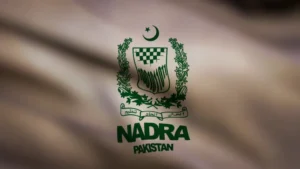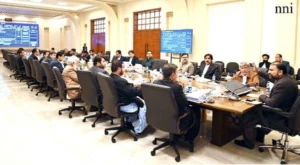Amid escalating conflict and mounting humanitarian need in Gaza, the Global Samud Flotilla has emerged as an unprecedented civil society coalition, aiming to break Israel’s naval blockade and deliver urgent aid. This international effort captured worldwide attention for both its scale and the controversy sparked by its interception on October 1, 2025.
Launch of the Global Samud Flotela: A New Stage in Solidarity
Launched in late August and early September 2025, the Global Samud Flotilla united an array of humanitarian groups with a shared mission to reach the besieged Gaza Strip. Coordinated departures took place from Spain, Italy, Tunisia, and Malaysia, with the largest launch witnessed by over 40,000 citizens in Barcelona. In total, the flotilla comprised between 40 and 50 vessels carrying more than 500 participants representing 44 countries. The name “Samud” means “steadfastness” in Arabic, underlining the participants’ resilience in the face of overwhelming odds.
Prominent global figures joined the mission, including Swedish climate activist Greta Thunberg, South African MP Mandla Mandela, and Pakistani Senator Mushtaq Ahmad Khan. The Pakistani delegation was especially prominent, with Khan serving as its leader, a fact that would become deeply significant during the events that followed.
Challenges on the High Seas
The Global Samud Flotela’s journey was marked by relentless obstacles. The convoy was repeatedly targeted by drone attacks, with several boats, including the American “Ohwayla,” Italian “Maria Cristina,” and lead ship “Family” sustaining serious mechanical damage. Sabotage was suspected after a Turkish engineer found inexplicable engine failure on the “Family” just off Crete; oil was missing, and several other vessels faced rigging damage and burn injuries caused by chemical munitions.
Beyond physical dangers, flotela participants also faced government and diplomatic pressure. Italy’s government urged its citizens to withdraw and offered to redirect the aid through alternative channels, causing at least 10 Italian volunteers to exit the mission. Egyptian delegates were detained in Cairo while collecting supplies, and the flotilla’s communications were hampered by Israeli electronic jamming throughout the voyage.
Global Samud Flotela: The Night of the Interception
In a dramatic escalation on October 1, 2025, Israeli naval forces intercepted the flotilla’s lead vessels approximately 70 to 80 nautical miles from Gaza. At least 13 vessels were boarded, and over 200 activists from more than 37 countries were detained. Water cannons and aggressive boarding techniques were used, with passengers, including women’s rights activists and elderly volunteers, taken into Israeli custody for processing and deportation. One civilian observer boat managed to escape with a handful of activists.
Senator Mushtaq Ahmad Khan’s detention quickly made headlines across Pakistan and the world, sparking strong diplomatic protests from Islamabad. The Pakistani government called the act a “flagrant violation of international law,” while Senator Khan’s family and supporters demanded international action for his immediate release. Similar condemnations came from Turkey, Malaysia, Spain, and a joint statement featuring 16 countries, which called for respect for maritime law and the safe passage of humanitarian aid to Gaza.
International Support and Continuing Impact
Spain deployed a naval escort to safeguard its vessels, while Turkey provided drone and intelligence assistance for monitoring the flotilla. Protests erupted in Istanbul, Rome, Madrid, Buenos Aires, and Berlin, and Italian unions even called a nationwide general strike in solidarity with the aid mission. In a historic move, Colombia expelled Israel’s diplomatic corps over the attack. United Nations experts and civil society groups widely condemned Israel’s interception as a violation of international maritime law.
Despite the interception, more than 30 vessels continued their journey toward Gaza, underscoring the mission’s resilience and the international outcry against the ongoing blockade. The Global Samud Flotela not only brought aid but also ignited a global conversation about the humanitarian crisis in Gaza and the responsibilities of the international community in upholding human rights.
The interception of the Global Samud Flotilla may prove to be a pivotal moment in the world’s response to Gaza’s desperate situation. Its courageous stand, high-profile arrests, and broad cross-border alliance mark a new chapter in the struggle for justice, shining a spotlight on Gaza’s suffering and on the power and peril of international solidarity at sea.
Conclusion
The Global Samud Flotilla’s mission stands as a profound testament to international solidarity and humanitarian commitment amidst one of the most severe crises in Gaza’s history. Despite facing repeated drone attacks, mechanical sabotage, and aggressive interception by Israeli naval forces resulting in numerous arrests, including that of prominent figures like Senator Mushtaq Ahmad Khan, the flotilla succeeded in drawing global attention to the dire situation in Gaza and the pressing need for humanitarian aid.
The widespread support from over 40 countries and condemnation of the interception by numerous governments underscores the flotilla’s significance as a symbol of peaceful resistance against blockade and oppression. Its journey marks a pivotal chapter in advocating for human rights, the protection of civilians, and the enforcement of international maritime law. The courage and resilience of the Global Samud Flotilla participants continue to inspire global calls for justice, accountability, and the lifting of Gaza’s blockade for lasting peace and humanity.



